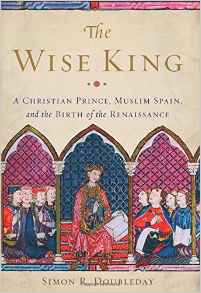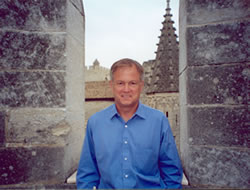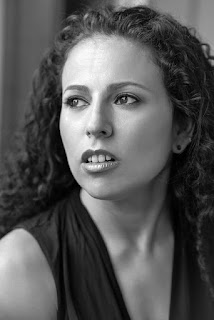Jim Downs is the author of the new book Stand By Me: The Forgotten History of Gay Liberation. His other books include Sick from Freedom, and his work has appeared in a variety of publications, including Time and The Huffington Post. He is an Andrew W. Mellon New Directions fellow at Harvard University and an
associate professor of history at Connecticut College. He lives in Cambridge, Massachusetts.
Q:
You write, “My focus here is to correct the hypersexual caricature of gay men
in the 1970s by exploring and recounting the everyday ways in which gay men
sustained an identity and culture.” How did the caricature come into being, and
why has it persisted?
A:
The caricature of gay men as hypersexual has been around since the invention of
homosexuality—since the late 19th century when the state and others in power
began to define homosexuality and then regulate against it.
In
other words, there is a difference between men having sex with men, which could
be seen as timeless, and the naming of those practices that developed in the
late 19th century.
When
those practices are named, they were then summarily outlawed. Gay people consequently
enter the historical record because of their so-called deviant sexual
practices; they are only recognized as sexual beings.
This
is only part of the story. In prewar Berlin, gay men created a vibrant culture
that extended beyond sex but was then eradicated by the Nazis.
Gay
men have often been engaged in the creation of a community and cultural
identity that included sex but also involved the writing of their history, the
development of literature, the making of a community. That part of gay history
has often been downplayed or ignored in favor of the portrayal of them as
hypersexual.
In
the recent past, the outbreak of HIV, which confounded doctors, public health
officials, journalists, and gay people themselves, perpetrated the notion of
gay men as hypersexual.
When
the epidemic broke out, the aforementioned groups pointed to the sexual culture
of the 1970s to rationalize the spread of the virus and in so doing erased the
rich, diverse culture of the 1970s.
In
my research, I uncovered, for example, the creation of a global gay religious
movement that began in L.A. in the late 1960s but then spread across the
country and other parts of the world.
Gay
men established their own specific church, The Metropolitan Community Church,
and others created offshoot organizations, such as Integrity for Gay
Episcopalians, Dignity for Gay Catholics, Beth Chayim Chadash for Gay Jews, and
the list goes on for many other religious traditions.
Yet,
the narrative of gay men being hypersexual and by extension immoral purposely
erased the history of gay people praying in churches and in synagogues.
Q:
Your first chapter is called “The Largest Massacre of Gay People in American
History.” Why did you choose to begin with this event, which took place in New
Orleans in 1973?
A:
This event embodies the major argument of the book. As I mentioned above, many
more LGBT people were involved in the making of the gay religious movement than
we have previously known or even imagined.
In
New Orleans, members of the Metropolitan Community Church met on June 24, 1973
to celebrate the fourth anniversary of the Stonewall uprising that marked the
official start of gay liberation. When the anniversary celebration ended, the
liturgy services began around 7pm.
Someone
or possibly more than one person tried to get into the bar that had been
converted into a church but since the bar was in an unsafe part of the French
Quarter, the doors to the bar/church were locked.
A
few moments later, the person or persons came back with a firebomb and detonated
it on the steps leading to the second floor of the bar where members of the MCC
met.
As
I explain in the book in fuller detail, over 32 gay people were then killed in
the fire, marking the largest massacre of gay people in U.S. history.
As
I also explain, this was not the only church fire, there were other arson
attacks on gay churches throughout the country. Much of this eerily evokes the
tragic arson attacks of black churches during the 20th century.
We
have rightly documented burnings against black churches but my book is the
first to document arson attacks against gay churches.
Q:
One of your chapters, “Body Language,” looks at the rise of the “macho gay man”
in the 1970s. What impact did that image have on gay politics and issues during
the decade?
A:
I think the increased focused on appearance and bodily aesthetics had the
directed effect of privileging masculinity and whiteness as the signature
hallmarks of gay identity.
As
I explain further in that chapter, the LGBT movement went from being a
relatively racially diverse and inclusive movement in the early 1970s that was
engaged in the black freedom struggle, the feminist movement and other social
movements of the period to an apolitical movement in the late 1970s that forgot
its more radical roots and commitment to the politics of all oppressed peoples.
Q:
How did you choose the book’s title, and what does it signify for you?
A:
The original title was "More than Just Sex," because I was trying to, as I
explained above, [see] the 1970s as it was, not as HIV/AIDS has defined it.
I
then chose "Stand By Me" because I realized that in negating that formulation, I
was actually reifying it. So, instead, "Stand by Me" captured the mood of the
period: how people often stood together as a community.
In
the church in New Orleans in 1973, for example, seconds before the fire
explosion, members of the MCC sang, “For united we stand, divided we fall, and
if our backs should ever be against the wall, we’ll be together, you and I.”
These lyrics proved to be sadly prescient but also [describe] the literal and
even metaphorical way that gay people stood together.
Q:
What are you working on now?
A:
I am working on a few projects. One is the sequel to this book about the 1970s;
the other is a sequel to my first book, Sick from Freedom: African-American
Illness and Suffering during the Civil War and Reconstruction, that charts the
development of epidemiology as a field of study.
Q:
Anything else we should know?
A:
Gay History is a relatively new topic. Most people have not taken a gay history
class in college or high school and often have not even had gay issues
addressed in courses that aim to tell the history of the United States. So, I
think, this book is crucial in trying to correct that absence and teach us
about the past.
--Interview with Deborah Kalb




























